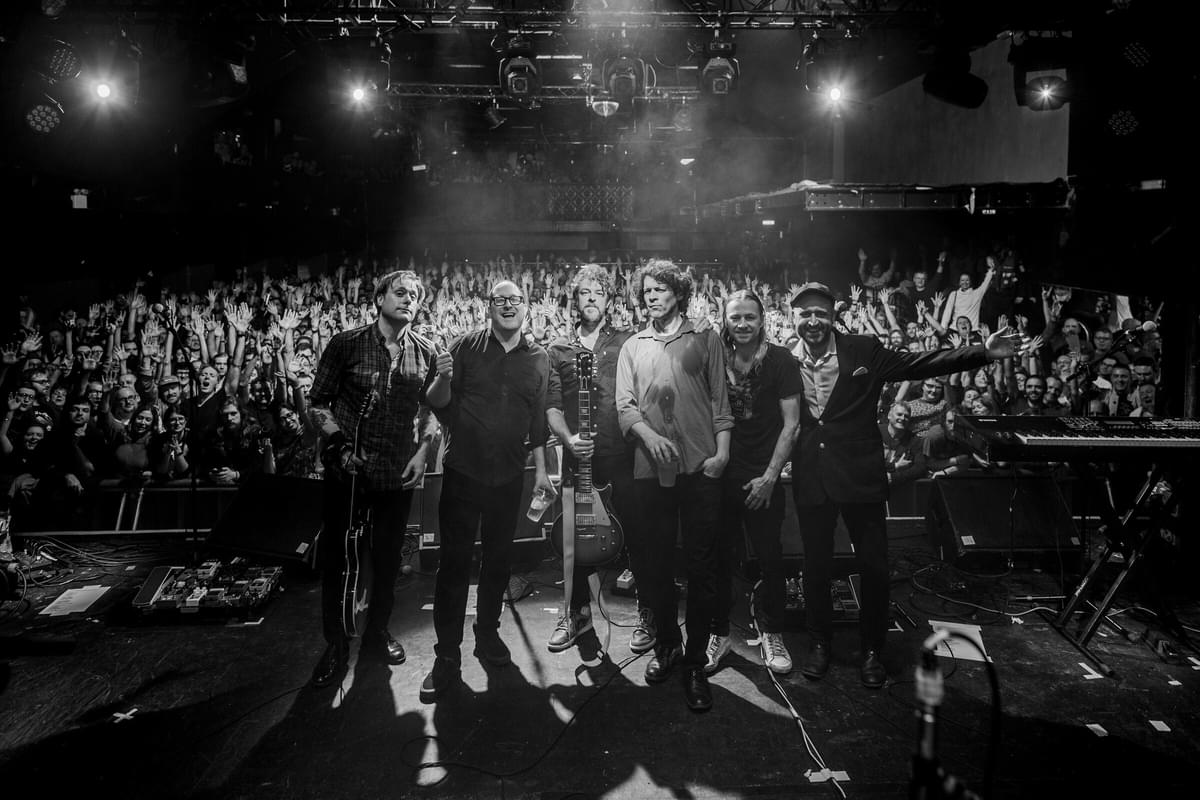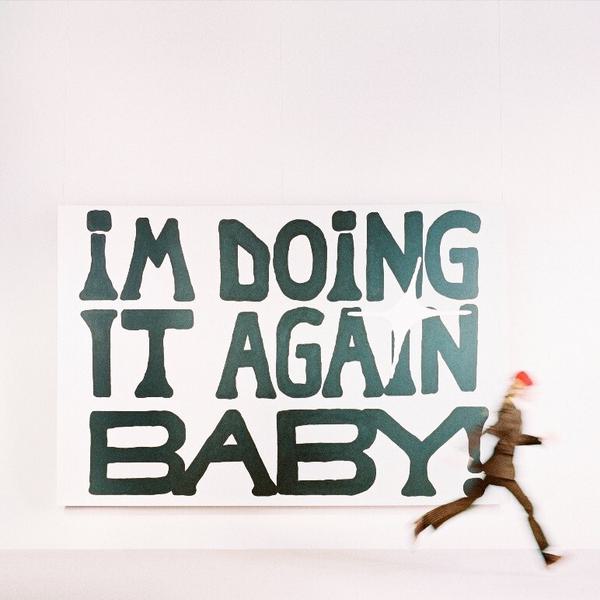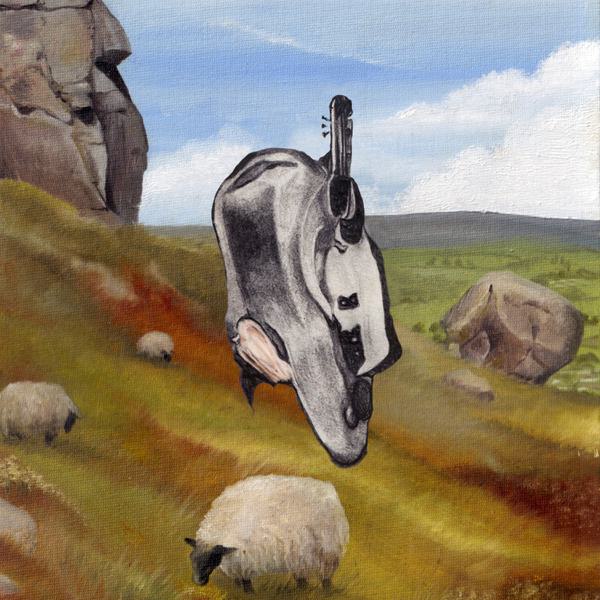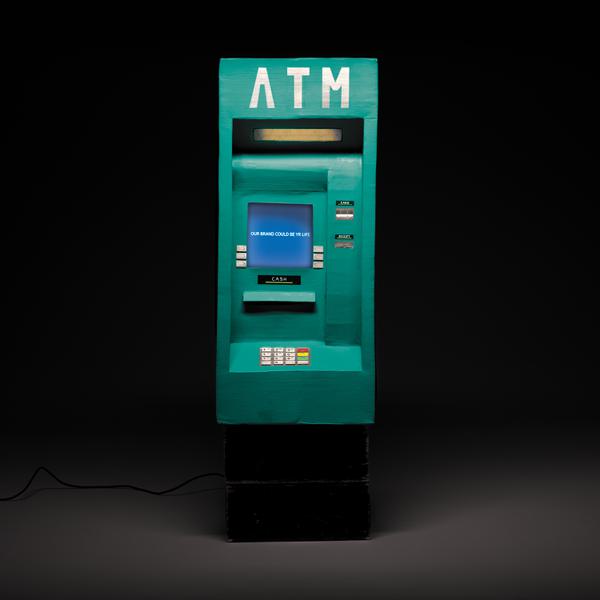
The Unified Scene of The Hold Steady
American rockers The Hold Steady talk through humble beginnings, changing lives, and the enduring appeal of the alternative scene
For many, The Hold Steady are more than just a band. They are a summation of time and place, a group with which to align yourself and share in their highs and lows.
Their secret could lie in their everyman aesthetic, an erosion of boundaries between artist and fan. There is an unspoken acceptance that nothing other than circumstance separates them from those in the front row. It could also lie in the words of frontman Craig Finn, who sculpts alternate lives to get lost in, the notches of which still contain traces of yourself. His tales of lost souls and gutter dreamers scratching around in the dirt for faith and redemption are an invitation to forget or make sense of your own problems. It was perhaps put best by one of the fans I spoke to for this feature who said that within the lyrics of The Hold Steady, "every so often you’ll find a universal truth that is applicable no matter what walk of life you come from."
The Hold Steady have also always been the antithesis to a prescribed scene. From the subject matter of Finn's lyrics to the band's unashamed embrace of bombastic classic rock, they stood out from the majority of groups who emerged along with them in the early '00s. To this day, they remain true to themselves and refreshingly unique to their contemporaries.
Harbouring their own deep-set belief in the power of music, the band sought to establish a community around themselves in their formative years. Through their efforts, and that of a few diehard fans, a close-knit but inclusive devotion steadily built. Buoyed by message boards and the proactive interaction of the band themselves, the fan base became known as The Unified Scene. The group is now unique in their scarcity. Parallels could be drawn with the followings of Drive-By Truckers and Frank Turner, but The Unified Scene tap into something special in the way they operate, marking themselves and the band they follow out from the crowd. United by a common adoration and communing around a shared feeling as much as anything else, crowds at shows become congregational as online friendships transcend into reality, all forged from inclusivity of interest.
Embraced by the band, fans have become friends. In fact, some members of The Unified Scene are now actively working alongside the group in a range of different roles. An example of how this special relationship has played out in real life is, perhaps, best displayed by the case of Camie Heller. Heller, a fan and regular on The Unified Scene message boards who now facilitates the group's ticket exchange initiative, met her future husband Cory at a Hold Steady show. The two became friends with the band and Cory would later propose in the front row of a show as the group watched on. Finn even officiated at their wedding.
A message I kept hearing when speaking to members of the scene was "this band has changed my life". It bears more than a passing reference to the themes of Michael Azerrad’s book Our Band Could Be Your Life which chronicles the American indie underground of the '80s and '90s, a time when the alternative scene still held a romantic notion of being about more than just the music. It was a way of life, a shared purpose. Those halcyon days may be fading into memory but some glimmers still remain.
For The Hold Steady, the release of 2014's Teeth Dreams and subsequent tour was followed by a notable period of inactivity that pointed towards a somewhat unknown future. It was a period within which Finn worked on a critically acclaimed trilogy of solo records with producer Josh Kaufmann culminating in this year's I Need a New War. There were many within The Unified Scene that felt the bands show at Bowery Ballroom in February 2015 may have been their last - the confetti cannons synonymous with their live shows had sounded their final salute.
However with 2016 came the tenth anniversary of the band's breakthrough record, Boys and Girls in America. The group emerged from their hiatus to announce a run of shows in Brooklyn to celebrate the record as well as marking the return of keyboardist Franz Nicolay. Nicolay's departure in 2010 had marked a major shift in the group. Having been an integral part of the band as well as a huge personality and presence, his loss was clearly felt by band and fans alike. His return was seen as a welcome celebration, added reason to mark the tenth birthday of the record that made them.
The success of the anniversary shows and rejuvenation felt by the members resulted in additional residences being booked in Chicago and Brooklyn, and three nights in London - The Weekender. The band also teased new material, dropping singles to coincide with the concerts. Now a powerhouse of songwriters, founding member Tad Kubler, Nicolay, and guitarist Steve Selvidge - who joined the band in 2010 - all contributed music for Finn to write lyrics to. The series of recording sessions with producer Kauffman which spawned the Weekender singles resulted in enough material for the release of their upcoming record Thrashing Thru The Passion.
In coming together again, the band have had to reconnect and figure out how to work together personally and professionally as a six-piece. They have also had to evolve in an industry that is constantly changing. One that is markedly different from their last album release in 2014, and a completely different world to that of their 2003 debut.
I spoke with Finn, Kubler, Nicolay, and Selvidge about what they’ve built around themselves and what it has become. It is a story of embracing support without being constricted by it, being thankful for the past while changing for the future, and ultimately being part of something bigger than themselves.

On community, becoming a band that matters, and The Unified Scene
“Searching for a purpose or just something we can celebrate,” – "Confusion in the Marketplace"
Craig Finn: "I remember when we started the band, we were talking about how we wanted to be a band that people like felt part of something. That was something that I took from punk and especially hardcore. Being part of a scene and feeling a part of something when my favourite bands played. We knew we weren’t going to be a hardcore band, we were going to be more like a classic rock band. But we’d said, 'Why can’t a rock and roll band have some… of that beautiful part of punk and hardcore?' We tried to build that. It didn’t happen immediately but it got there for sure."
Tad Kubler: "Craig and I have now been playing music together for pretty much two decades. I was in Lifter Puller with Craig and my role in the band, and my role in his life has always kind of been to bring a bit of calamity or spontaneity. I'm definitely the Riggs to his Murtaugh. He's the older wiser veteran detective and I'm the young hothead loose cannon and unpredictable. In that sense, there have been many points with The Hold Steady where I don't really think about things any further than the song we're working on or whatever’s happening at that moment. Whereas Craig is definitely the visionary that way…the plan kind of reveals itself but Craig knows it far in advance and I figure it out as we go along. I think that also speaks to the level of trust between him and me."
Finn: "I always remember reading about The Clash getting people into the shows or getting people a place to crash on the floor of their hotel room. So that was kind of the thing we would do. I guess it just started with being very available after the show and talking to people. Then as people started to travel for shows, it was like 'we want to say we noticed you, you were in the front row three nights in a row, what’s your name?' that kind of thing.
"By going back to our classic rock roots, it almost felt a little more populist and a little more inclusive musically because it wasn’t about being very obscure. It felt like we were trying to do music that a lot of people could get into, and referenced things that were popular, be it Springsteen or Led Zeppelin or whatever. It wasn’t about trying to be indie, or play shows that people didn’t know about, or release records that people couldn’t get. It was about trying to create something that people from all over could understand and be a part of.
"Craig and I have now been playing music together for pretty much two decades. I'm definitely the Riggs to his Murtaugh. He's the older wiser veteran detective and I'm the young hothead loose cannon and unpredictable." - Tad Kubler
Franz Nicolay: "In the early days of any band, it’s always like your friends and the people who you go out drinking with and that was the sense from the early days. And for a long time, the people who fell under that group just expanded in number."
Finn: "Technology took over at a certain point where there was a message board prior to social media being as big. The message board united a lot of people. That sort of took on a life of its own. There was even a period when The Unified Scene sprung up as more of a formal thing and people were making shirts for it. The shirts had this really great purpose. Everyone got a number then you could identify who they were. So if you’d been talking to someone in a different city and they didn’t know what you looked like, if you wore your shirt and they knew you were number 12 they’d be like 'hey, I know you, let’s hang out at the show.' That was ingenious and that was something the fans really came up with on their own. I remember being a little nervous about it as there were people who had the shirts and people who didn’t, and I didn’t want people to feel like there was a two-tier system or something. We always wanted it to be inclusionary and not exclusionary."
Steve Selvidge: "I was friends with the band since right around the first album. So I sort of watched them take off with Boys and Girls in America. Tad and I would catch up from time to time so I was aware of The Unified Scene from the beginning, for sure."
Nicolay: "These people are friends now. They have this thing in common…and they get together a couple of times a year. There's the show which is the reason for being there. But as I understand it, they self-organise all kinds of other activities while they are in town. Especially now that we are doing these multi-nights they can get up and go out running together and pick the bars to meet up at. Some of them have gotten married to each other! All of this stuff that exists out of our control and out of our consciousness as well."
Finn: "It’s like around us but it doesn’t always require us. It’s taken on a life of its own and I think there’s a real beauty to that. The idea that these friendships are being made around the shows and these people are going back to their own towns and continuing to communicate and continuing to grow the friendships that they made around the band."
Selvidge: "It’s pretty self-sufficient. There are different levels of who is involved in the 'scene'. Some people actually deal directly with our management and work in concert with them to do things. They seem to be pretty self-contained and we work with them at shows now, whoever happens to be there. Brendan Hilliard was the number one Hold Steady fan. He was always the first person right upfront. Now he's basically part of the organisation, and there are a couple of other people who are always there who have also become part of our community."
Finn: "We want to foster that community in any way we can. Historically, The Clash is always the band who I look to that did it amazingly but in modern times, Frank Turner is incredible at creating a community. We could learn a lot from him, he’s kind of the master."
Selvidge: "A lot of people who like us like Titus Andronicus or maybe Gaslight Anthem or bands like that. I'm not in those other bands' scenes, I know those guys but I don't know if it's like us or not. I do feel like our thing is somewhat unique. Certainly, there are bigger bands than us who have bigger fan bases that go crazier probably, but the way ours operates is unique and really positive."
"Certainly, there are bigger bands than us who have bigger fan bases that go crazier probably, but the way ours operates is unique and really positive." - Steve Selvidge
Finn: "In our social media digital age, getting together in a room with other people is something we do less and less. So it’s more and more important and people feel the power of that. It’s a very human connection and something to commune around. Maybe at some point, this is what church was to people, but it’s a community they can feel a part of and has its own sort of rituals and a good feeling, a feeling that you are a part of something and you are doing something."
Kubler: "The people that come out to the shows that come see us play, that's the best part of this band really and the way that we've been performing or doing shows or “touring” really helps to elevate that. Never mind the music, that's all well and good and everything and I guess that's where it starts and that's why we're all here, but there's sort of a higher purpose to it all and that's the congregation, the unity of it."

On time away, reconnection, and the start of something new
"We all do our own little part / This is the future / We can make a new start," - "Traditional Village"
Kubler: "We had taken a break and everybody went off and did other things and it was really nice to be able to have that kind of freedom. I honestly kind of thought 'Alright, well, that was great, I’m glad I got to do that… and I’m sure we'll get a phone call at some point or do a show here or there down the road and run into the guys,' but you know…"
Selvidge: "We never broke up but there weren't any plans on the books. It was just kind of like we were just taking a break. No one knew what it was going to look like going forward so when Franz came back and when we started writing it was sort of like a celebration all across the board. In some ways, Franz coming back was a turning point for me. It’s not that I didn’t feel a part of the band before but my relationships with the band got deeper and more nuanced. And something that I absolutely can own."
Kubler: "When Franz was in the band the first go around, he and I started off on a very high point creatively. It was great to work with him but because of both of our personalities… we both got a little possessive and thought we had to plant our flag. Franz said coming into a guitar-centric band as a keyboard player, he really wanted to stake his claim. He came in and he did that.
"When Franz came back creatively, everything just clicked because I had quite a bit more awareness about what was going on with me and it just allowed the whole thing to come together so much better." - Tad Kubler
"Personality-wise, he's so likable and everybody thinks he's great and I got all fucking hurt and my ego's all bruised and 'Oh, nobody likes me.' So it became toxic pretty quickly, unfortunately. I don't think that's why he left, I think there were a lot of other reasons around that, and even as toxic as it was when Franz and I get together it comes out pretty well.
"When he left Steve came in. Because Steve and I are so close and because of our friendship, I was able to make space creatively that I should have or didn't make for Franz. When Franz came back creatively, everything just clicked because I had quite a bit more awareness about what was going on with me and it just allowed the whole thing to come together so much better."
Nicolay: "We hadn't really been in touch… so there was a little bit of feeling each other out musically and emotionally but it did feel good. It was the first time that Steve and I have been in the band together so we had to figure out how to play, even physically, we're both a little crammed in stage right. But also how to give each other a little elbow room music-wise which has been a pleasure I must say, he's a tremendous musician and a great guy.
"It was baby steps every step of the way. At first, it was 'well does everyone want to do these tenth anniversary Boys and Girls in America festivals shows?” And it was yes. Then those went pretty well 'so would you be interested in doing x, y, and z?' Then we did a couple of these weekend shows."
"We were doing these shows in Chicago… sitting there learning a Styx song and I’m thinking in the back of my head “we should not be doing this, we should actually be writing new music rather than learning a song by a band I don’t even like." - Craig Finn
Finn: "I’ve been saying it every night that I’m in the unique position of being one of the only people who has been at every Hold Steady show and this is the best lineup we’ve ever had, with Steve and Franz. So it’s pretty cool.
"Once we started playing in that line up it was like, 'We should have some new songs.' We were doing these shows in Chicago… sitting there learning a Styx song, and I’m thinking in the back of my head “we should not be doing this, we should actually be writing new music rather than learning a song by a band I don’t even like."

On creativity, recording practices, and the "seventh member" of the band
"It doesn't have to be perfect / Just sort of has to be worth it," – "Denver Haircut"
Finn: "With technology now and the way people listen to music, I thought, 'What if we just drop some songs before one of our shows in Brooklyn?' Then we’d have a new song or two to play at the Massive Nights and people would maybe always remember those songs as attached to that weekend.
"So we started doing those singles and I thought that was a really cool way to work. It felt good straight away and it was fun so we kept recording songs and putting them out, generally around when we were playing one of these weekends."
Selvidge: "We'd never recorded anything as this iteration with me and Franz. That was the first time that we had done it and maybe there was a bit of a learning curve but it went well enough and we got ‘Entitlement Crew’ out of it. So we continued to write. We did the second session of tunes that went even better so we kept playing these shows. We kept adding different cities and we were like, 'This is fun… we're having a good time.'"
"With technology now and the way people listen to music, I thought 'What if we just drop some songs before one of our shows in Brooklyn?'" - Craig Finn
Nicolay: "It's something exciting for those weekends. It felt like we were rehearsing all the time. That little bit of high wire act of 'how’s it going to go?' It also keeps the momentum going in a way that the old album cycle model doesn't necessarily. If you are putting out an album every two or three years that means you're probably on the road playing the same set for a year and a half. Then you get together and you try to write 15 or 20 songs and record them. Then you're doing those songs for the next couple of years. There's a couple of problems with that. One of which is that not everybody has the burst of inspiration that comes with 15 or 20 awesome songs on-call once every two or three years. But a decent band can come up with two or three pretty decent songs every couple of months right? So if you just keep a low level of demos constantly burbling. It keeps the flame simmering for a much longer time."
Kubler: "You wouldn’t throw on a pair of fucking sneakers one morning and run out to the starting line on Staten Island for the New York marathon. You have to work up to it, you have to be in shape to do something like that and being creative is the same way. You have to make sure that you are mentally, physically, emotionally and spiritually in shape to do what you need to do. By being creative on a very consistent basis like we've been doing now, it keeps things evolving.
"Working how we used to, you can run the risk of being too precious about everything. Whereas this way we're like 'Fuck it, we'll do it different on the next one.' It doesn't give you enough time to overthink things and destroy them. Because of the way we've been working, I forgot that we had a record coming out."
Nicolay: "If things get too easy, that’s also a problem. The aspect of rediscovering each other as collaborators and having to figure out for the first time how Tad and Steve and I are going to fit together instrumentally and as songwriters provide a really productive creative tension that keeps everybody paying attention. We're discovering new things about what a band can do because it’s a different band and we're all 15 years on. We're different people and we don't see each other twice a week for three-hour rehearsals. So we get together every couple of months and everything stays extremely fresh as a result. We're recording these songs days after we sort out the arrangements."
Finn: "At the beginning of this year, we recorded five songs. I was like, 'Well, they sound so good and they sound so good together that maybe this is the A-side of a record and we can populate the B side with some of these other songs that we’ve already done.' I look back at music I really like, '80s English music like The Clash, The Smiths people like that, who were releasing singles that were being anxiously waited on in between LPs. Then they would package them into LPs."
Selvidge: "Those five songs captured a really great moment in time and we all felt really jazzed about it. You try not to think about that end product in terms of how it's going to be received because you don't want to start just pandering to that. You just want to make the song the best it can be. We certainly had a positive response to the singles we put out prior, so that gave us a feeling that we were on the right track in terms of what we're doing."
"Working how we used to, you can run the risk of being too precious about everything. Whereas this way we're like, 'Fuck it, we'll do it different on the next one.'" - Tad Kubler
Nicolay: "I'm happy to have a full length coming out because that makes people pay attention to the songs who aren't paying attention every time we drop a song or two on Bandcamp. But it is so frustrating to finish some songs in January and not have people hear them until August. I mean why have you got to do that? I mean who cares? We'll put out a song or two every couple of months and then, of course, all you hear is “when are you going to collect them on to vinyl?” Well, there 14 songs out there just make a playlist!"
Finn: "I’ve gone off and played with different people and, in some ways, that’s how you get better, throwing yourself into situations and seeing if you drown or not. It’s given me a lot of confidence and it’s made me a better musician. It gave me perspective on what is great about The Hold Steady; the fun part, the celebratory part. I was able to identify that as something we should go towards.
"With the solo stuff I am really focusing on smaller things, smaller stories, and smaller more mundane, more vulnerable moments. The Hold Steady is more cinematic; bigger things are happening, the stories are bigger, the guitars are louder. For me, it feels blessed to be able to do both because it’s like two different muscles you get to flex and I feel fortunate to have an audience for both."
Nicolay: "In this bunch of songs, Josh Kauffman has been like the seventh member of the band in terms of figuring out how it’s all going to work. He's someone who Craig feels super comfortable with. It took a minute for the rest of our band to get used to the comfort level that Craig had with Josh. And he didn't really know anything about our band but once we all got a couple of sessions in, it's been super productive and I think everyone trusts him."
Selvidge: "He's just got a great playfulness. A lot of the light you might find in the music he helped bring out. He's very curious about sounds and fun little moments. He's got good ideas and he was susceptive to other ideas. It's good having a producer who in those moments when you say, 'So what do you think should go right here? I'm stumped,' or, 'I don't like what I'm doing do you have any other ideas?' A lot of times he would have a great one."
Kubler: "The guy is a fucking monster guitar player. If you put me, Steve and Josh, together in a room and Franz and Craig, I would say you've got a bunch of dudes that are at the top of their game and at their craft and then you've got me. But it’s great because it makes me a better player inevitably or at least that's the hope anyway.
"With the solo stuff, I am really focussing on smaller things, more mundane moments. The Hold Steady is more cinematic; bigger things are happening, the stories are bigger, the guitars are louder." - Craig Finn
"I often like to demo stuff myself, not because I want to write all the parts, or I think all the parts should go like this but that's just my process to get the idea out or make sure the idea is fully evolved. But working with Josh, I've stopped doing that. In fact, I've almost stopped doing demos. I'll come up with an idea and I won't take it any further than that because I know wherever things are going to go working on it with Josh is going to be far more exciting than having me fucking whittle away at this thing for six months and try to perfect it."
Selvidge: "The big picture is the song, that's the most important thing so it's all-around serving that. For me, I come from a background where - especially in Memphis where I live - I've done a tonne of session work so I'm used to working with a myriad of different producers so whoever you are working with you just find what works and go with that.
Kubler: "One thing you want to try and get out of a performance in a recording is that joy of discovery and it's really hard to capture especially when you're doing two or three takes, or - god forbid - eight or nine takes of a song. It’s hard to have that continue to come through so that's one of his strong suits.
"That's maybe what was missing on some of our later records. Just because of how we were being creative or the process or whatever, habits we had fallen into that way. Josh has been really helpful and really fantastic in bringing that back.
"In Six Degrees of Separation, Donald Sutherland is a big shot art dealer and there's this dream sequence about him going to his kid's third grade and talking to the art teacher and saying, 'how do you do it? You've made my child a Matisse. The second graders don't make any sense and it’s all splotches and colours, and the fourth graders are all camouflage, but the third graders - all of them Matisse’s, how do you do it?' And the teacher just looks at him and says, 'I just know when to take their paintings away from them.' That is such a fucking brilliant line. You can kill something, you can destroy it by not allowing it to be what it wants to be or go where it needs to go. Josh is really good at knowing when to take our painting away from us."

On gratitude, the future, and what it means to be in The Hold Steady in 2019
"Now promise me you won't forget / The nights that haven't happened yet," - "Blackout Sam"
Finn: "Seeing the world and meeting so many people from different places, it’s hard to imagine what life would have been without The Hold Steady. Although that said, it was started with modest ambitions. It really happened because people seemed to like it, there wasn’t any master plan. We weren’t working with labels that we're able to ram it down people’s throats or anything. There was just this genuinely great reaction to the music we were making and it led to all this stuff and absolutely changed me wildly as a person, in a good way."
Selvidge: "Personally, it’s certainly been a journey. I knew the guys but 2010 was a lot of new faces all at once and I had no idea how it was going to turn out. The band was in a very transitional time, a little frazzled. So there's the arc of, 'What am I doing here?' It’s like I've found another family which is great ‘cause even though I knew the guys, we got way closer. I like where we ended up, we’ve ended up in a good place and it feels sustainable.
"I know that there's the middle of our catalogue and that's why everybody is there, for the most part, you know what I mean, like Boys and Girls in America, Stay Positive, and Separation Sunday. But we're still making new songs, (and) for me it feels good and it feels honest having fun ‘cause I know as soon as we go into ‘Entitlement Crew’ - those beautiful people accepted that song as canon immediately - people are stoked when that intro starts. I got goosebumps right now just thinking about it. That right there is as good a reason as any to move forward."
"So much has changed about how people listen to music and how records are sold. It’s not 2003 so why are we promoting a record like it's 2003. Why don’t we do things differently in 2019?" - Craig Finn
Finn: "Separation Sunday started a period when we were kind of on the hamster wheel. In 2019, there’s a lot more, 'do we want to do this? Is this going to be fun?' We’ve done so much in the past that there isn’t much we are going to do just to experience it. So it’s got to be like, 'Yeah that sounds like a great way to spend our time.'
"So much has changed about how people listen to music and how records are sold, it somehow takes the pressure off of you. It’s not the same so why are we acting like it is. It’s not 2003 so why are we promoting a record like it's 2003. Why don’t we do things differently in 2019? It’s been good for everyone’s mental health and just the spirit of the band which feels great right now.
Nicolay: "I have a deep appreciation at this point for the impact that this music has had on people. The first leg I was in the band was so intense that those five years felt like ten years and I never got a chance to really sink into the understanding of what the music was doing to people. When I was out of the band and when I was doing my solo touring especially, I would run into people who want to talk to me about how much the music meant to them. I've really come to appreciate it and to understand what we have in the band really is something special and different from other bands that I have been in or bands I grew up in or from other bands that we came up with.
"Every time we walk out on stage, it blows my mind. I'm like 'I can’t see anybody that I know, what are these people doing here?' And that's when you kind of think 'God damn, I can't believe that this is what we do.'" - Tad Kubler
"There is an aspect that, especially as you're a younger musician, all your friends came to be in good bands and all the bands you meet on tour that you liked are awesome bands. And it takes 15 or 20 years down the line for this sorting to happen for which ones have really changed people’s lives and to be able to really sink into that fact."
Finn: "I always say that sometimes we will play a show and down front I’ll see a couple of guys and by the end of the show (they’ll) grab each other and sing the lyrics to each other with their arms around each other and I’m like, 'I know those guys didn’t know each other at the beginning of the night.' That’s when I feel like we have achieved lift off. 'We did it tonight, we’ve got strangers hugging strangers.'"
Kubler: "Every time we walk out on stage and there's maybe more than a handful of people in the audience, I just think, 'Who the fuck are all these people?' It blows my mind. I'm like, 'I can’t see anybody that I know, what are these people doing here?' And that's when you kind of think, 'God damn, I can't believe that this is what we do.' And to see how people respond and to hear what it means to people and everything else, well, I don't need a better reason for doing this."
Get the Best Fit take on the week in music direct to your inbox every Friday

Lynks
Abomination

Asha Jefferies
Ego Ride

girl in red
I'M DOING IT AGAIN BABY!





